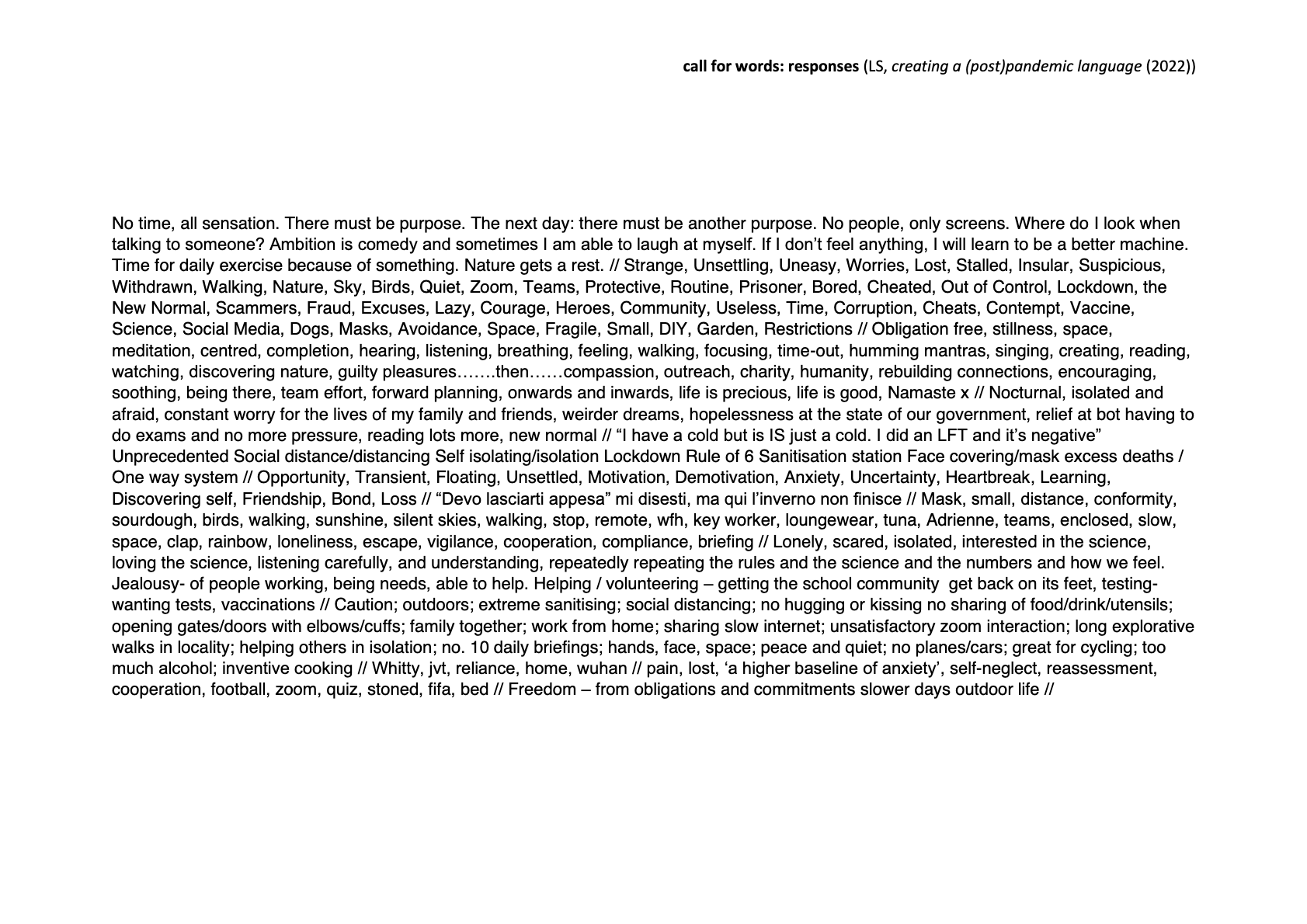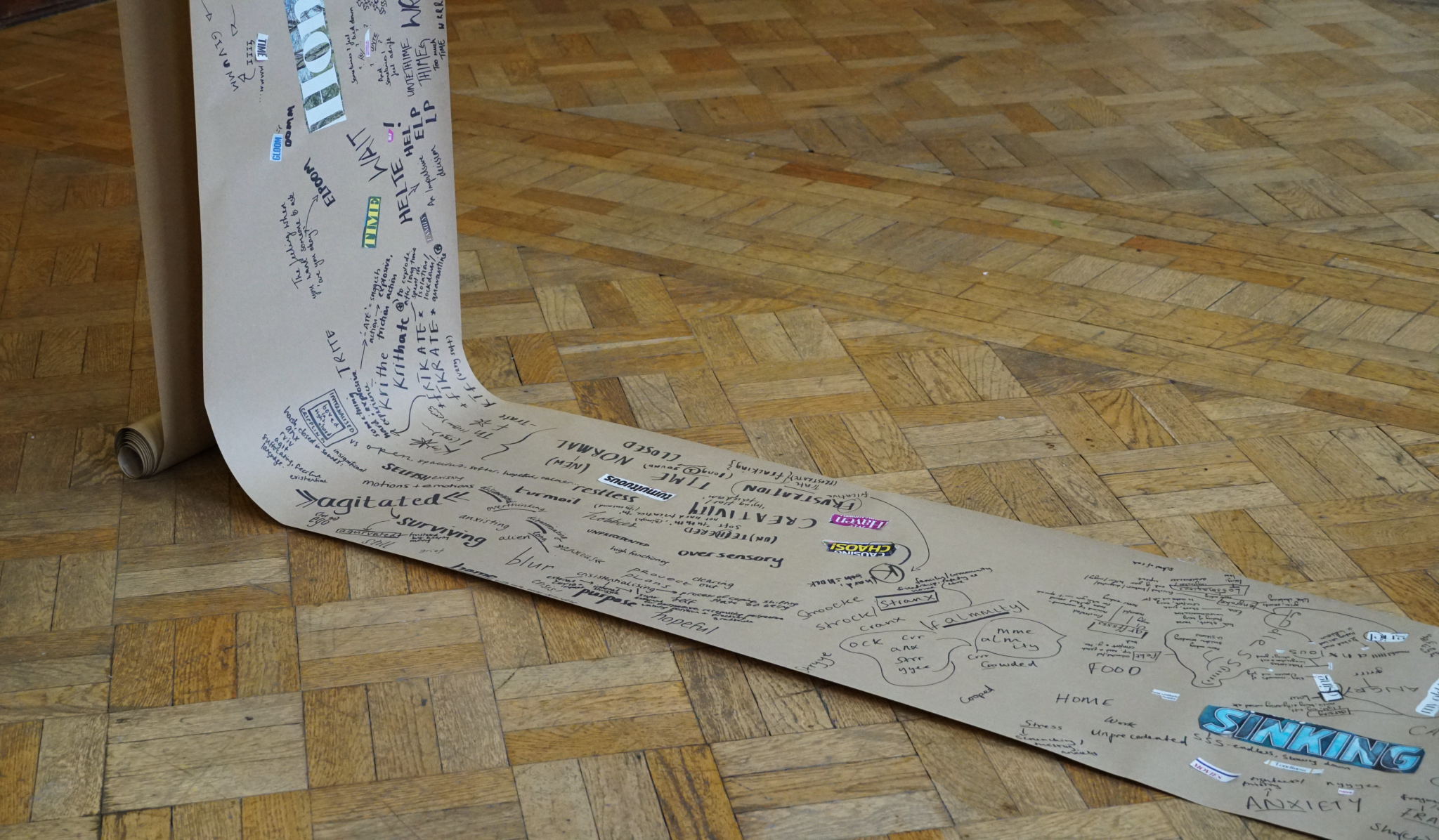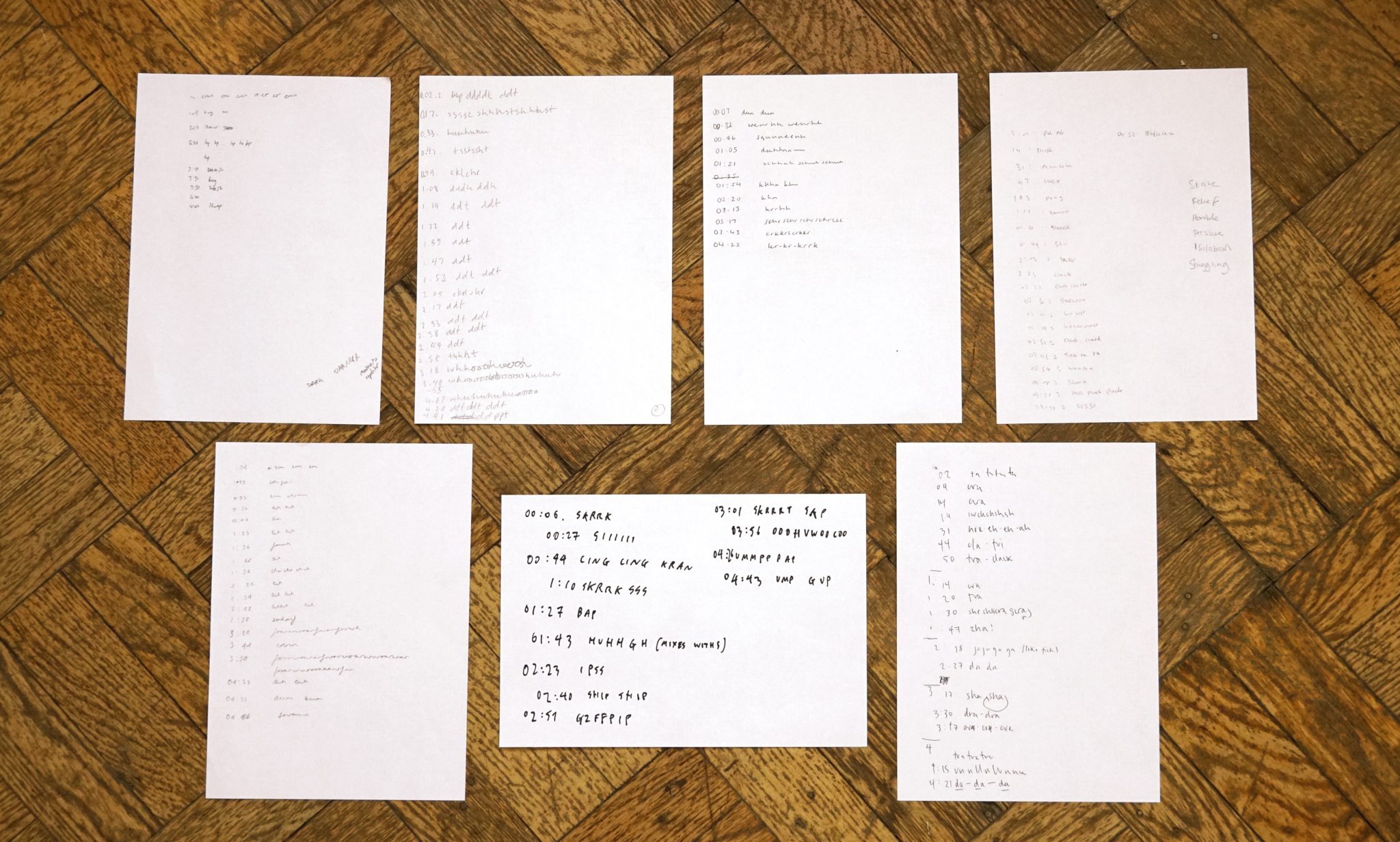Lottie Sadd (she/her) is an interdisciplinary composer-performer who creates immersive sonic performances and installations. In her work, Sadd invites audiences to step outside of an object-centric art experience and into dynamic processes, often using improvisation, field recordings and text. Over the course of the Covid-19 pandemic, Sadd’s practice has focused on the voice – through verbal language and other non-verbal and bodily communication – in response to feminist mythologies of women as sirens, Medusas and witches. In addressing the historical and contemporary persecution of the ‘other’, the unsettling results of Sadd’s practice resonate with the tumultuousness of today’s pandemic world.
For her PANIC! project, Sadd has worked with language, exploring how a new (post-)pandemic lexicon might be created and understood. Through workshops and a call for words, Sadd has generated and collected words and phrases and feelings we associate with the Covid-19 pandemic. Moving beyond the limitations of language by thinking primarily through sound, Sadd asked participants to create new words and meanings which more intuitively reflect and resonate with our individual and collective experiences of pandemic-living.
Presented here is a non-chronological collection of exercises composed from the material gathered by Sadd. The video works – mouthfuls – show a closely intimate performance of Sadd mouthing, uttering and tasting a selection of the new words created in the workshops and with a programming patch used to manipulate audio, created on Max/msp and developed specifically for her project. Material gathered from the call for words is expressed through an electroacoustic composition in which words blur and slip between sound and meaning. Photographs from the workshops show collaborative ‘tapestries’ of language which trace the creation of new words through their etymological roots.
Through these exercises, Sadd examines how we connect with and are understood by others, re-imagining conventional communication and calling for new approaches in light of the uprooting of ‘normality’ caused by the pandemic.




